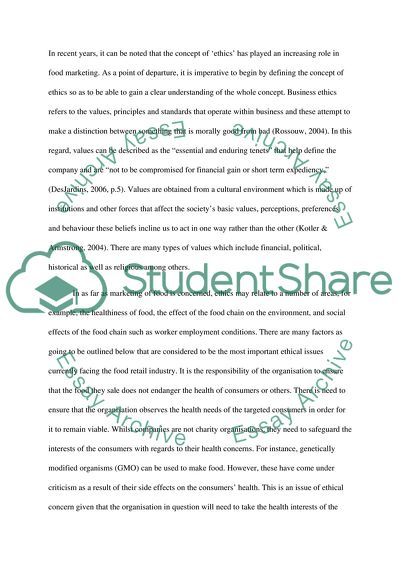Cite this document
(Food Marketing Ethics Assignment Example | Topics and Well Written Essays - 3250 words - 1, n.d.)
Food Marketing Ethics Assignment Example | Topics and Well Written Essays - 3250 words - 1. Retrieved from https://studentshare.org/marketing/1750093-food-marketing-ethics-play-in-food-marketing
Food Marketing Ethics Assignment Example | Topics and Well Written Essays - 3250 words - 1. Retrieved from https://studentshare.org/marketing/1750093-food-marketing-ethics-play-in-food-marketing
(Food Marketing Ethics Assignment Example | Topics and Well Written Essays - 3250 Words - 1)
Food Marketing Ethics Assignment Example | Topics and Well Written Essays - 3250 Words - 1. https://studentshare.org/marketing/1750093-food-marketing-ethics-play-in-food-marketing.
Food Marketing Ethics Assignment Example | Topics and Well Written Essays - 3250 Words - 1. https://studentshare.org/marketing/1750093-food-marketing-ethics-play-in-food-marketing.
“Food Marketing Ethics Assignment Example | Topics and Well Written Essays - 3250 Words - 1”, n.d. https://studentshare.org/marketing/1750093-food-marketing-ethics-play-in-food-marketing.


